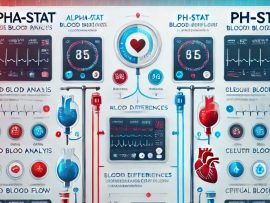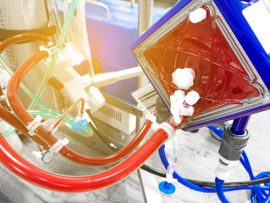Abstract Background Continuous blood gas monitoring (CBGM) during cardiopulmonary bypass (CPB) is essential for maintaining optimal patient outcomes, enabling rapid responses to critical fluctuations in blood gas parameters. This non-inferiority..
Read MoreIntroduction Blood gas management during cardiopulmonary bypass (CPB) is crucial for optimizing oxygen delivery and cerebral perfusion, especially in temperature-regulated surgeries such as deep hypothermic circulatory arrest (DHCA). Two primary..
Read MoreAbstract Background Venous blood gas sampling has replaced arterial sampling in many critically ill patients, though interpretation of venous pCO2 still remains a challenge. Lemoël et al., Farkas and Zeserson et..
Read MoreAbstract Introduction: Alterations in the acid-base balance are studied in all medical specialties. Although most cases derive from a preexisting pathology, they can also manifest themselves in a primary context...
Read MoreAbstract Background This study aims to compare lactate and central venous blood gas in the prediction of outcome in pediatric venoarterial mode extracorporeal membrane oxygenation (V-A ECMO). Method This was..
Read MoreAbstract Research question Given the relative independence of ventilator settings from gas exchange and plasticity of blood gas values during extracorporeal cardiopulmonary resuscitation (ECPR), do mechanical ventilation parameters and blood..
Read MoreJohn Ingram, CCP lectures on the differences between PH stat and Alpha stat techniques for blood gas management and the advantages and disadvantages of each during norm and hypothermic bypass..
Read More






